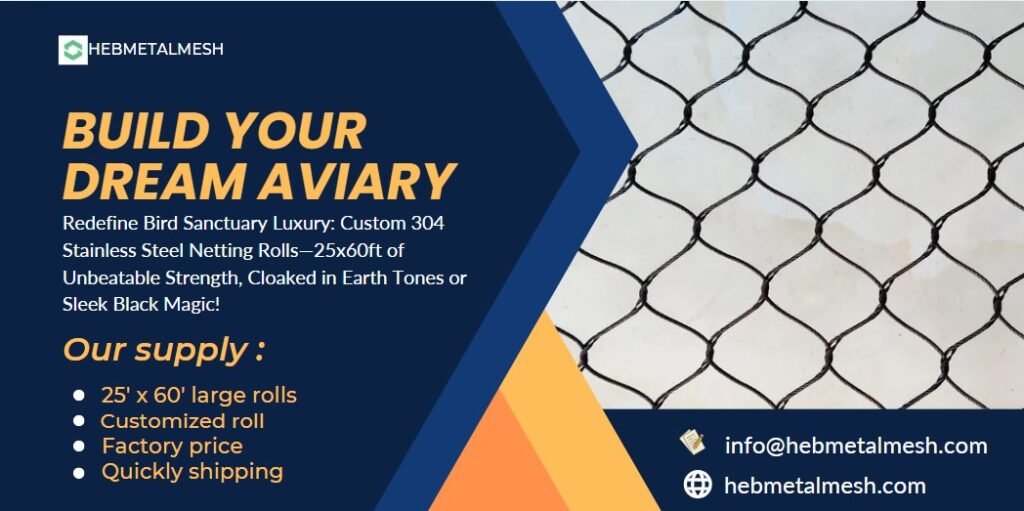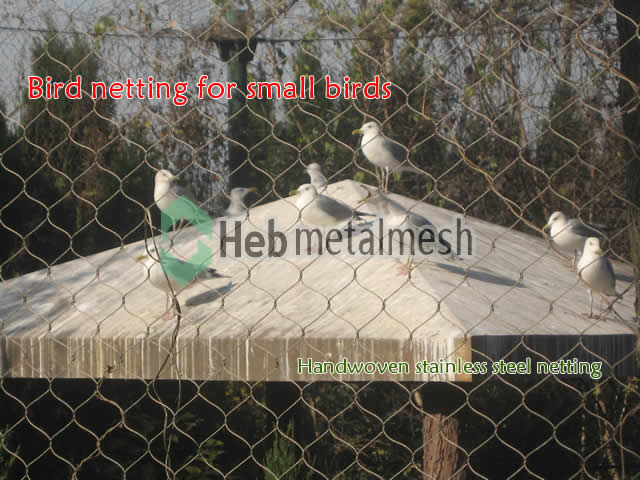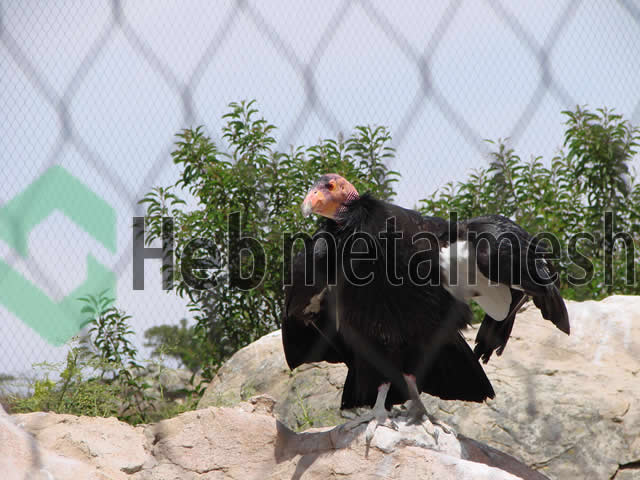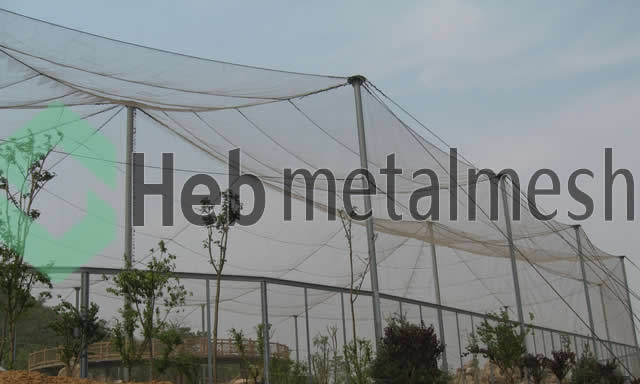Introduction to Net Bird Solutions
Net bird solutions are increasingly recognized as a vital component in ensuring the safety and protection of avian species across various environments, including zoos, aviaries, and conservation centers. As global awareness around animal welfare rises, the importance of implementing secure and humane habitats for birds has become paramount. These solutions not only provide physical safety but also promote the psychological well-being of the birds by offering them an environment that mimics their natural habitats.
One of the primary concerns in bird conservation is preventing escapes and protecting these species from predation or environmental hazards. The utilization of durable and innovative materials, such as the Hebmetalmesh zoo mesh, offers a reliable method to create enclosures that are virtually impenetrable yet allow for natural sunlight and airflow. This balance is critical for maintaining a healthy habitat that encourages natural behaviors while safeguarding the well-being of the animals inside.
Furthermore, with the increasing urbanization and habitat destruction, innovative net bird solutions have become essential in supporting birds in their native environments as well. Such solutions allow for the integration of protective measures in areas where avian species face threats from development and human activity. With a focus on conservation, these nets serve not only as physical barriers but also as a medium to educate the public about the significance of safeguarding bird populations.
In conclusion, the adoption of net bird solutions marks a progressive step toward ensuring the protection, welfare, and conservation of birds. The innovative applications of materials like Hebmetalmesh provide effective protection for avian species, addressing the growing concerns for their safety in both artificial enclosures and natural habitats. The future of bird conservation relies heavily on such advancements in protective technologies.
Understanding Zoo Mesh: What is Hebmetalmesh?
Hebmetalmesh represents a specialized type of mesh designed specifically for use in zoos and aviaries, providing a safe habitat for various species, particularly birds. Its unique composition merges high tensile strength and resilience, making it suitable for long-term outdoor applications. The core material typically consists of stainless steel, which ensures high durability and resistance to corrosion, allowing for prolonged exposure to environmental elements without compromising integrity.
One of the defining features of Hebmetalmesh is its lightweight structure, which reduces the overall load on supporting frameworks, facilitating easier installations. This material maintains a balance between strength and flexibility, able to withstand the activities of birds while accommodating minimal deformation under stress. Furthermore, this mesh is designed to be non-toxic and eco-friendly, ensuring the safety of all animals without posing risks to their welfare.
Visibility is another critical property of Hebmetalmesh. The mesh enhances visibility for both visitors and animals, bridging the gap between safety and engagement. Its design incorporates large openings that allow an unobstructed view while maintaining security, thus contributing to a more interactive experience for visitors. This transparency is essential in educational settings, as it allows a clear perspective of the birds without the hindrance of solid barriers.
Additionally, Hebmetalmesh demonstrates excellent weather resistance, effectively depicting a surface that can withstand varying climatic conditions, from intense sunlight to heavy rainfall. This adaptability ensures longevity and consistent performance, crucial for environments where the net bird enclosures are susceptible to the stresses of outdoor habitats. In summary, Hebmetalmesh exemplifies an ideal solution for zoos, contributing significantly to the well-being of birds while enhancing visitor experience.
The Importance of Safety in Bird Enclosures
Ensuring the safety of bird enclosures is paramount not only for the well-being of the birds but also for the peace of mind of their caretakers. Birds in captivity are particularly vulnerable to a range of threats, including escapes and predation. The implementation of effective safety measures, such as using high-quality netting solutions like Hebmetalmesh zoo mesh, serves as a crucial line of defense in preventing these dangers.
Escapes can pose significant risks, both for the birds and the surrounding environment. Captive birds may attempt to fly away, exposing them to the elements, predators, or contamination in unfamiliar habitats. Enclosures that lack adequate safety features can lead to such incidents, with studies indicating that many birds in captivity escape due to insufficient safety measures. Properly designed netting solutions can greatly mitigate these risks, ensuring that birds remain within designated safe areas.
Moreover, enclosures must also protect birds from external threats, particularly from natural predators such as cats, hawks, and other wildlife. The presence of predators can introduce extreme stress among birds, affecting their health and overall quality of life. Implementing secure netting systems can minimize the chances of predator access, thereby promoting a more secure environment that allows birds to thrive without fear.
Additionally, a well-constructed enclosure plays a key role in reducing stress and anxiety among bird populations. When birds feel safe and secure in their surroundings, they are less likely to experience harmful stress, leading to improved behavioral outcomes. Research has shown that birds in secure environments exhibit greater well-being and more natural behaviors, which are indicators of a healthy state of mind.
In summary, the importance of safety in bird enclosures cannot be overstated. By utilizing robust netting solutions, one can ensure the safety of birds from escapes and predators while promoting a healthy and stress-free living environment.
Key Features of Hebmetalmesh Zoo Mesh
Hebmetalmesh zoo mesh is specifically designed to cater to the needs of avian enclosures, ensuring a safe and secure environment for various bird species. One of the prominent features of this innovative material is its UV resistance. This characteristic is essential for outdoor applications, as it prevents degradation and ensures longevity when exposed to harsh sunlight. Unlike traditional wire mesh, which can become brittle and break down over time, Hebmetalmesh maintains its integrity, making it a preferable choice for institutions looking to house birds in outdoor settings.
Another significant feature is the flexibility of Hebmetalmesh. This adaptability allows for easy installation in various shapes and sizes, facilitating the creation of customized enclosures that meet the specific needs of each species. Traditional materials may lack this adaptability, resulting in compromised housing for birds. The flexibility of Hebmetalmesh enables it to withstand environmental challenges, such as wind or impact from animals, without losing its structural stability.
Maintenance is also simplified with Hebmetalmesh, which is a crucial aspect for zookeepers and conservationists. The materials used are resistant to corrosion and easy to clean, ensuring that enclosures remain hygienic and safe for the birds. In comparison, traditional materials often require extensive upkeep, leading to increased labor costs and potential risks to avian health. The simplicity of maintaining Hebmetalmesh not only saves time but also promotes better living conditions for its occupants.
In summary, the notable features of Hebmetalmesh zoo mesh—namely its UV resistance, flexibility, and low maintenance requirements—illustrate its advantages over conventional materials. These benefits significantly contribute to the overall safety and well-being of the birds, making Hebmetalmesh an excellent choice for constructing reliable enclosures.
Innovations in Avian Enclosure Design

In recent years, the design of bird enclosures has evolved significantly, driven by a commitment to enhancing the safety and well-being of avian inhabitants while providing an engaging experience for visitors. One of the key advancements in this area is the integration of Hebmetalmesh, a specialized net bird material that embraces a variety of innovative approaches tailored for modern avian habitats.
Contemporary architecture for bird enclosures prominently features natural elements, ensuring that enclosures emulate the birds’ natural environments. Designers are increasingly using Hebmetalmesh not only for its durable and lightweight properties but also for its ability to blend seamlessly with organic materials. This integration fosters a less invasive look and preserves the aesthetic of surrounding landscapes, making the net bird enclosures both functional and visually appealing.
Visitor interaction is another crucial aspect of modern enclosure design. Enclosures now feature transparent sections that utilize Hebmetalmesh to allow for unobstructed views of the birds while maintaining safety. This design facilitates a unique learning experience, as visitors can observe birds in a setting that closely mimics their natural habitat. Additionally, advanced systems are being implemented to ensure the accessibility of these enclosures, allowing for interactive educational programs that promote awareness about avian conservation efforts.
Safety protocols have also seen significant innovation, with Hebmetalmesh playing a vital role in securing enclosures against unforeseen risks. The material is engineered to withstand harsh weather conditions and potential threats from predators, thereby creating a more secure environment for the birds. As a result, avian care can be optimized, and stress levels reduced, enabling birds to thrive in these thoughtfully designed spaces.
Sustainability and Environmental Considerations
The use of Hebmetalmesh in the construction of safe enclosures for birds reflects a significant commitment to sustainability within the zoo industry. Unlike many conventional materials commonly used in zoo enclosures, Hebmetalmesh is sourced with an emphasis on environmentally responsible practices. This approach involves selecting materials that not only meet durability and safety standards but are also obtained through methods that minimize ecological impact. By prioritizing the use of sustainable materials, zoos can affirm their dedication to protecting wildlife and preserving natural habitats.
Another critical aspect of the environmental advantages of Hebmetalmesh is its recyclability. As the global emphasis on reducing waste intensifies, the ability to recycle enclosures at the end of their life cycle is vital. Hebmetalmesh products can be repurposed or processed, thereby reducing the volume of waste that ends up in landfills. This aligns with broader conservation goals by promoting a circular economy where materials are reused rather than discarded. Moreover, switching to net bird solutions like Hebmetalmesh can significantly reduce the need for frequent replacements, leading to a decrease in the consumption of resources over time.
Furthermore, the use of reliable netting solutions such as Hebmetalmesh contributes significantly to conservation initiatives within the zoological community. By ensuring that bird species are safely contained, zoos can effectively participate in breeding programs aimed at reintroducing vulnerable species into their natural environments. This not only aids in biodiversity preservation but also enhances public awareness about the importance of avian conservation. The integration of Hebmetalmesh in zoo designs thus supports a more sustainable approach that benefits both wildlife and our shared planet.
Case Studies: Successful Implementations of Hebmetalmesh Zoo Mesh
Various zoos and conservation centers across the globe have adopted the Hebmetalmesh zoo mesh to enhance their avian enclosures, resulting in measurable improvements in both bird safety and handler dynamics. One notable case is the Greenwood Zoo, which implemented the Hebmetalmesh solution for its extensive bird aviary. Previously, the enclosures were prone to risks associated with traditional meshing materials. After transitioning to the net bird solution, zoo keepers reported a significant decrease in stress levels exhibited by the birds. The flexible yet durable nature of the Hebmetalmesh allowed for a more naturalistic environment while ensuring the safety of the species contained.
Another impressive implementation can be observed at the urban wildlife rescue center, where the focus has been on creating a rehabilitation-friendly habitat for injured birds. The center integrated Hebmetalmesh technology into its enclosures, thus providing a secure, breathable, and visually unobtrusive barrier. Feedback from the center’s staff highlighted that the net bird’s design enhanced visibility for both caretakers and visitors, fostering greater engagement with the wildlife. As the birds recovered, their interactions and overall well-being significantly improved, demonstrating the myriad benefits of this innovative mesh solution.
At the Wildbird Sanctuary, an organization dedicated to avian rehabilitation, the integration of Hebmetalmesh has led to enhanced welfare protocols. The use of this specific zoo mesh has enabled staff to design enclosures that are not only safe but also encourage the birds to engage in natural behaviors, which is crucial for their recovery and reintegration into wild habitats. Staff feedback expressed satisfaction with the installation, noting a marked improvement in both physical health and behavioral displays amongst the birds. Through these case studies, it is evident that the formal adoption of Hebmetalmesh zoo mesh has yielded significant advancements in avian safety and welfare, paving the way for further research and implementation in similar institutions.
Expert Insights: What Professionals Say
The effectiveness of Hebmetalmesh zoo mesh as a guardian for avian habitats has been substantiated by various professionals across wildlife management and engineering disciplines. Experts in these fields have emphasized the durability, versatility, and safety features this net bird product offers for birds in captivity. According to Dr. Jane Hartley, a zoologist specializing in avian studies, “The use of Hebmetalmesh zoo mesh is an innovative step in ensuring the physical well-being of birds. The fine mesh design allows for adequate ventilation while safeguarding against potential escape or predator intrusion.” This assertion highlights the dual function of the material as both a protective barrier and an enabler for a healthy living environment.
Wildlife management expert Dr. Mark Sullivan reinforces this viewpoint by stating, “One of the main issues in bird enclosures is the risk of injury or stress due to poorly designed barriers. The Hebmetalmesh net bird fabric effectively addresses these concerns. Its lightweight properties contribute to reduced stress among the birds, while offering unmatched strength to withstand external forces.” This perspective indicates that the structural integrity of the net is a critical factor for animal welfare, making Hebmetalmesh an ideal choice for zoos and aviaries.
Additionally, insights from materials engineering reveal that the tensile strength and weather resistance of Hebmetalmesh zoo mesh are crucial in outdoor environments. Engineer Lisa Tran notes, “This net bird material is designed to endure harsh conditions, ensuring long-term use without compromising safety. Its UV resistance also prolongs its lifespan, minimizing the need for frequent replacements.” The expert consensus aligns on the fact that not only does Hebmetalmesh zoo mesh prioritize the safety of birds, it also provides a sustainable solution for facilities focused on the welfare of wildlife.
Conclusion: Securing the Future of Avian Safety
As we have explored throughout this article, the use of advanced materials for bird enclosures is vital for ensuring the safety and well-being of various avian species. The comprehensive benefits provided by Hebmetalmesh, a technologically advanced net bird solution, are not only evident in their structural integrity but also in their adaptability to different environments. By offering a durable, secure, and flexible approach to habitat design, Hebmetalmesh stands out as a leading choice for those looking to provide safe spaces for birds.
In addition to protecting birds from potential hazards, the installation of net bird solutions like Hebmetalmesh contributes significantly to the overall health of avian populations. Ensuring that birds are kept in safe, well-constructed environments not only promotes their physical safety but also enhances their psychological well-being. Such considerations are paramount in conservation efforts, as they allow for better breeding, rehabilitation, and rearing of young birds in controlled settings.
Moreover, as awareness grows around the importance of avian conservation, adopting innovative materials such as Hebmetalmesh could serve as a catalyst for change within the industry. It is essential for stakeholders, including zoos, wildlife sanctuaries, and individual bird owners, to reevaluate their current enclosures and consider the incorporation of advanced materials that prioritize avian safety. Investing in high-quality net bird solutions represents a fundamental step toward creating habitats that honor the needs and rights of birds.
As we move forward, the commitment to utilizing cutting-edge solutions will be essential in securing the future of avian safety. By promoting the welfare of bird species through innovative habitat design, we not only protect them but also cultivate a broader appreciation for the rich diversity of avian life. This collective effort can ultimately lead to a more sustainable coexistence between humans and birds, resulting in a harmonious environment where both can thrive.


